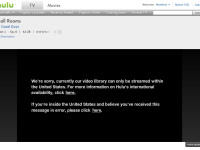In the closing months of the last Liberal majority government mandate, I spoke to a government official about the lessons learned from the prior four years. Their response? If we knew then what we know now, we would have moved much faster on policy. The four years moves very quickly and if you don’t manage to lay the groundwork and introduce proposed legislation within the first 12 – 24 months, it becomes very difficult to enact given competing policy priorities, demands on committee time, Senate review, and a myriad of other challenges.
As I think about what comes next for Canadian digital policy under the new Liberal minority government, those words strike me as more relevant than ever. Even if the government runs more like a majority than a minority (which certainly seems likely on digital policy as no one is forcing an election over privacy or wireless pricing), the same ministers return to their portfolios (which may or may not happen) and the same committee structures return largely unchanged (which will not happen since that INDU chair Dan Ruimy was not re-elected), picking up where the government left off in June will not be easy. Further, the Liberal platform provides the roadmap for future reforms, but moving rapidly on these issues – particularly given expectations that a minority government’s mandate may run shorter than a majority – suggests that quick wins will be preferred to extensive legislative reform.
So what are likely next steps on digital policy?









